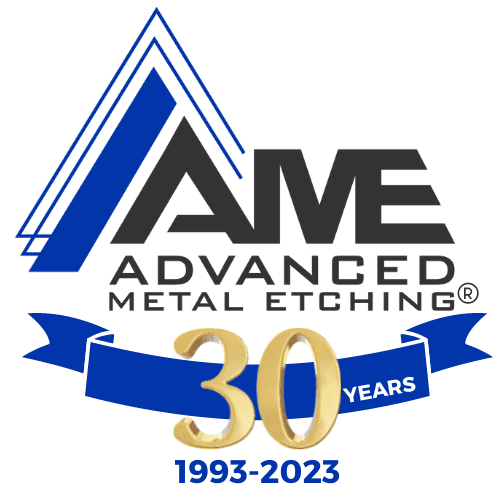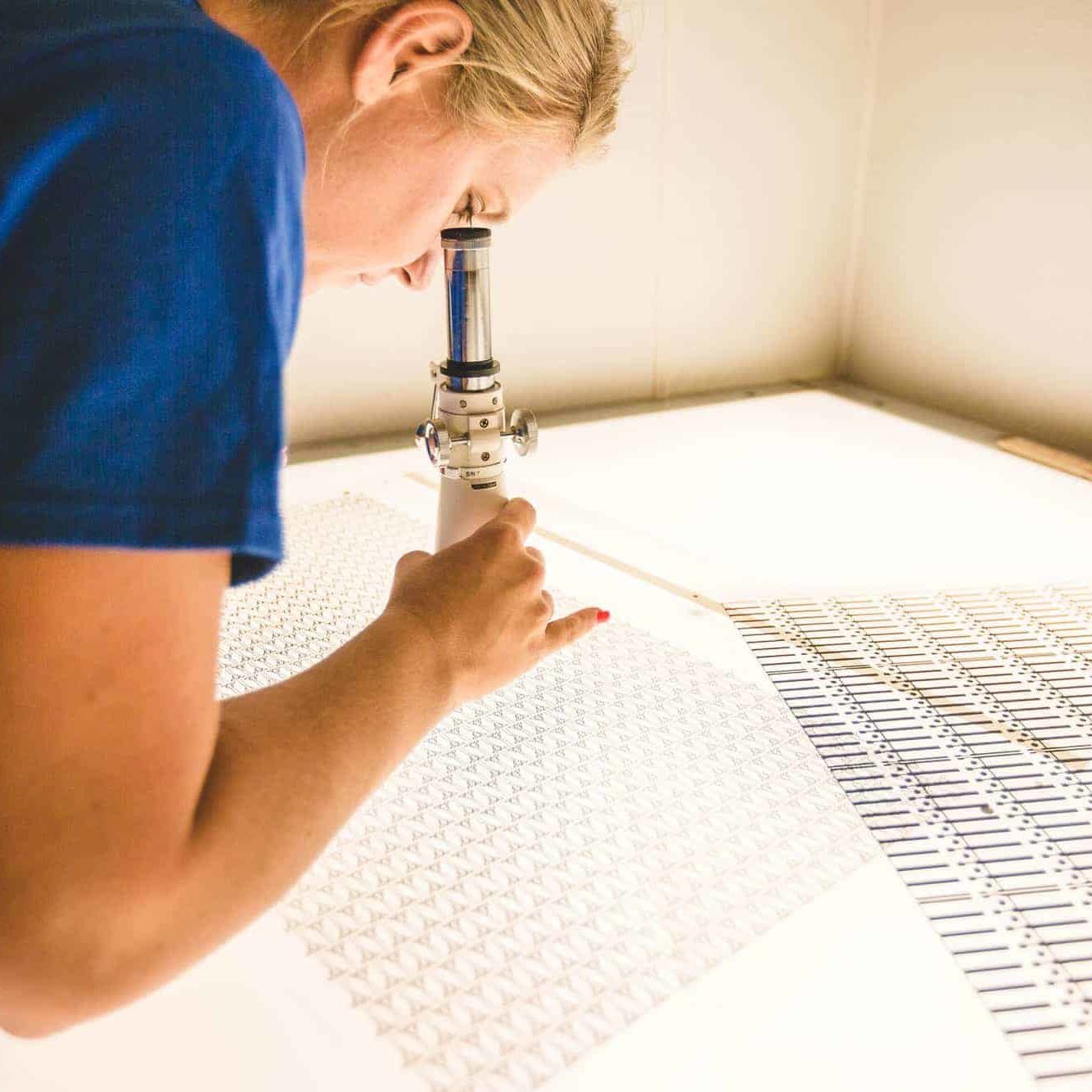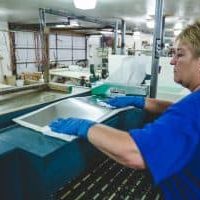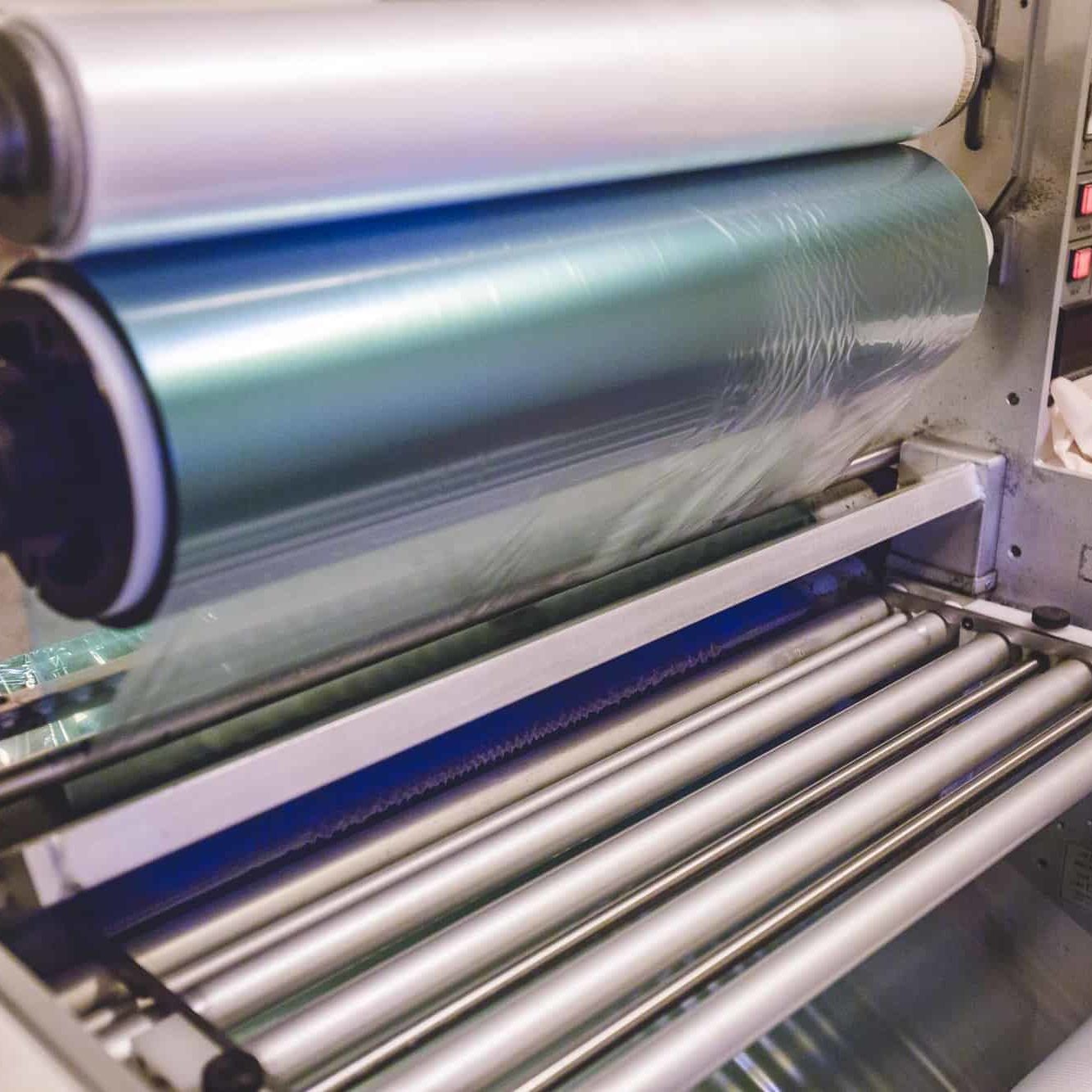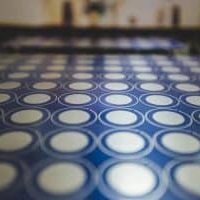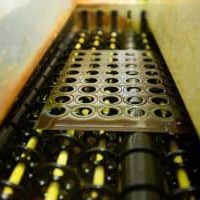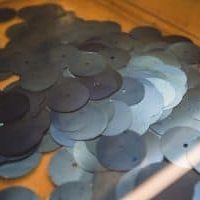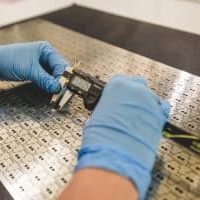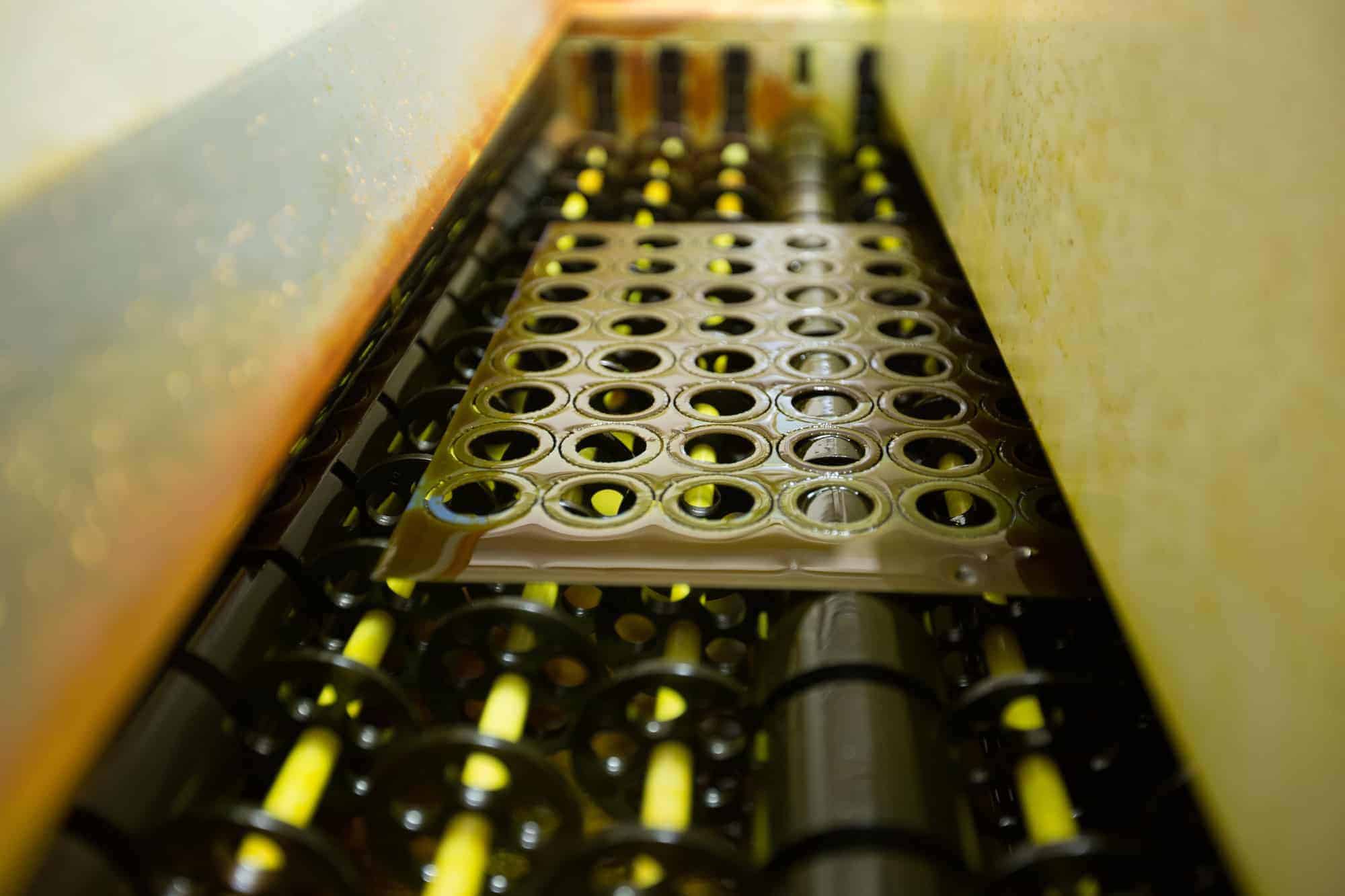
Acid Metal Etching-Benefits for Industrial Components
Acid etching is a process when material, such as metal, is cut using specifically formulated acid. There are two types of acid used in the process, ferric chloride and cupric chloride (used for copper alloys). Acid etching metal is a non-contact process. The acid dissolves the metal sections around the part features that are not coated with a photoresist laminate. The process avoids any contact with hard tooling that is often used in conventional methods such as stamping and CNC machining. For this reason, etching metal is favored over the other processes when the absence of burrs is critical to the part's requirements.
The industries that use acid to etch metal include DIY hobbyists, who create decorative metal pieces, and metal fabricators who use the processes to make customized metal parts for industries such as electronics, aerospace, medical, automotive, telecommunications, and automation.
This blog post focuses only on custom metal etching for industrial parts. The industry terms for this acid metal etching process are chemical etching, photo etching, photochemical machining, and chemical milling.
Below is a more specific description of the chemical etching process for parts such as lead frames, EMI/RFI shielding, springs, contacts, heat exchangers, filters, and many more industrial applications.
Acid Metal Etching Process For Industrial Parts
Photochemical etching is the prototyping choice for engineers when their designs are complex and must be free from burrs or stress deformation. The use of acids to dissolve unwanted metal eliminates the hard tooling and force present in other machining processes.
Digital Tooling
Our tooling engineers create a design using AutoCAD software to generate a repeating pattern to see how many parts will fit onto a metal sheet. The digital tooling is transposed onto two sheets of mylar film which will be placed on each side of the metal sheet.
Metal Preparation
We thoroughly clean the metal you have chosen for your part and its intended application of any residual oils and oxides. Only RoHS and DFARS compliant metals are used.
Exposure
We apply a photoresist coating on each side of the metal sheet. The laminated metal is placed between two identical copies of the photo tool. The surface is exposed to a UV light source that will harden the photoresist on the metal part design that is to remain throughout the etching process.
Developing
The sheets move through a developing machine where an alkaline solution washes away the top and bottom film on each sheet of metal that wasn't hardened during exposure.
Etching
We process the metal surface with a chemical etchant that dissolves the bare metal and leaves the desired design and dimensions.
Stripping
The etched sheets or dropout pieces are placed in a tank full of sodium hydroxide-based solution to remove the remaining photoresist film.
Inspection
The parts’ surface and dimensions are thoroughly measured using a comprehensive approach consisting of several handheld calipers and electronic magnification machines that will analyze a part's surface and tolerances before carefully packaging.
Which Metals are Commonly Used for Acid Etching?
Which metals can be acidly etched? When producing parts, it is important to know a metal's properties because specific metals will be more suitable depending on the application. Here are the more common metals we use in the acid process:
- Copper - Copper is a softer metal and therefore will etch faster than metals with a harder composition. Copper is commonly used for electronic components because it has good electrical and thermal conductivity.
- Brass - Brass is made of copper and zinc. It etches easily and retains its strength.
- Stainless Steel - Stainless steel etching is easier than most metals to etch and is very versatile. It is corrosion-resistant and performs well in hot and cold temperatures.
- Beryllium Copper - Beryllium copper is stronger than regular copper and has electrical and thermal conductivity.
- Cold-rolled steel - Cold-rolled steel retains its shape well and has an aesthetically pleasing surface and strength.
- Aluminum - Aluminum etching is ideal because of its strength-to-weight ratio.
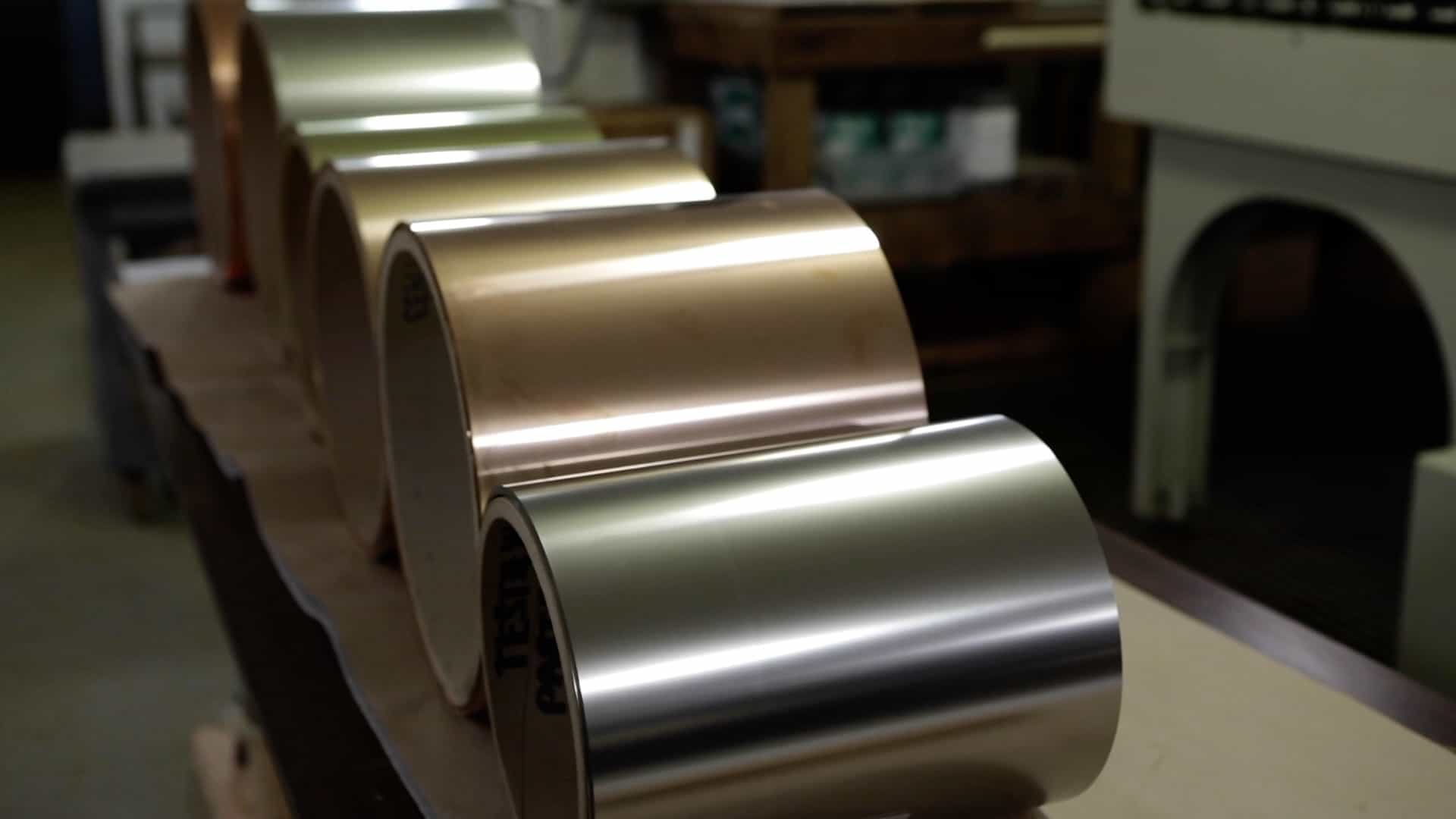
The list of metals encompasses all of the metals suitable for acid etching. However, as previously stated, being familiar with the types of metals and their properties can help you select the appropriate material for any acid etching project. It is essential to remember that the process does not alter a metal's properties, leave burrs, or cause stress deformations.
Here's a look at some of the most common types of parts that we etch and how acid metal etching is an excellent manufacturing option.
Acid Etched Metal Parts
EMI/RFI Shielding
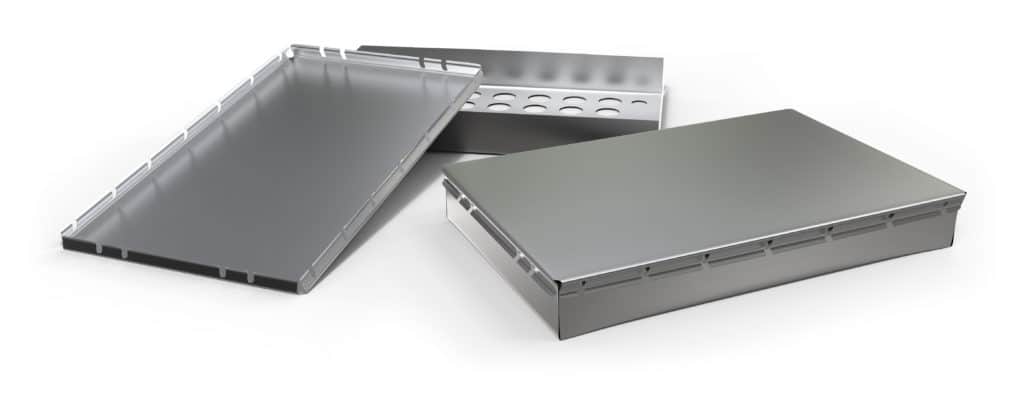
Electronic devices are becoming increasingly complex and require greater protection from outside interference. Electronic shielding changes are common, and prototyping has become an integral part of product development. Photo etching as the metal fabrication process makes sense for prototyping because the tooling is inexpensive and easily adjustable. Chemical etching capabilities can create a half-etch depth of 50% of the metal thickness to make bend lines. Instead of using an expensive forming tool, the shieling cans can be formed by hand.
Filters
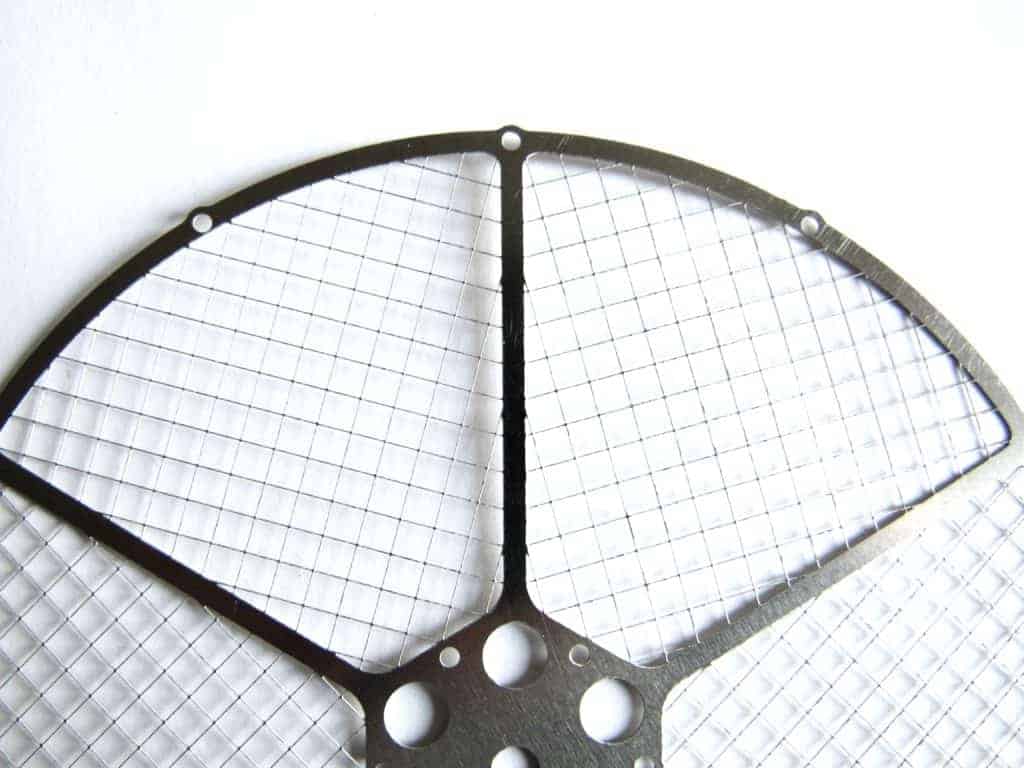
One of the benefits of etching steel filters used in the electronics industry is to save time and money. The intricate holes and slots are etched simultaneously, so the cost remains the same for one opening or a thousand. When it comes to filtering liquids in the food processing industry, metal etching can be used to create tiny pores in metal filters. These pores are small enough to remove impurities from water, but they don't significantly decrease water flow. Metal etching can quickly produce conical holes, aiding in liquid filtration and backflow cleaning.
Heat exchanger plates
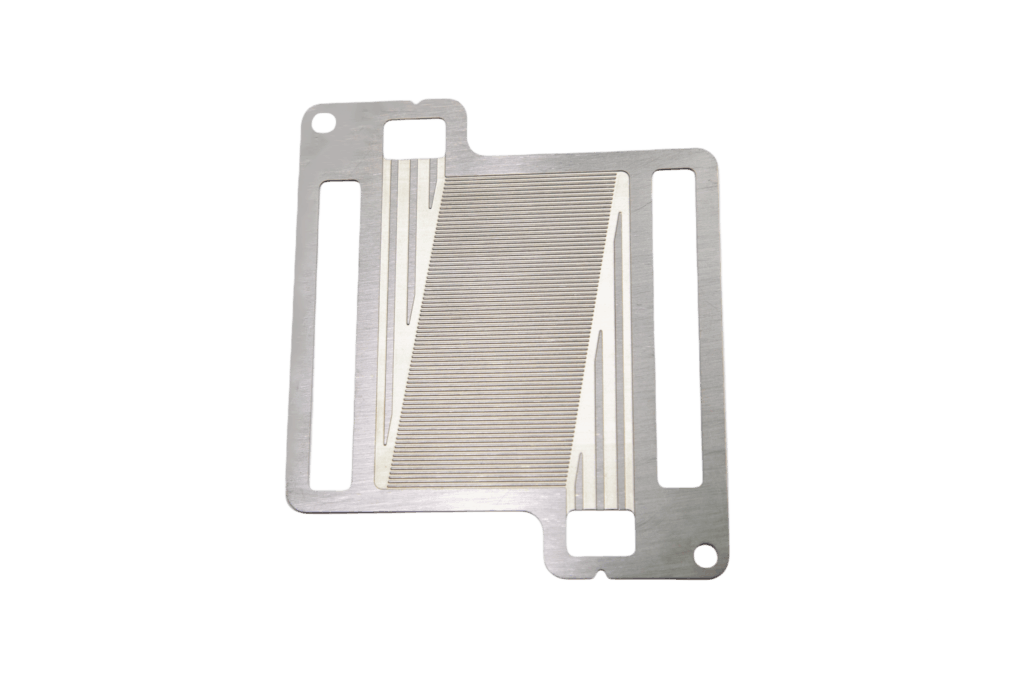
The benefits of choosing the photo etching process for these parts are two-fold. Heat exchanger plates require a partial etch on the metal's surface to create gas or fluidic flow channels and etched through inlet and outlet holes. These features can be manufactured in the same production run with the same tooling, saving time and money.
Electronic Components
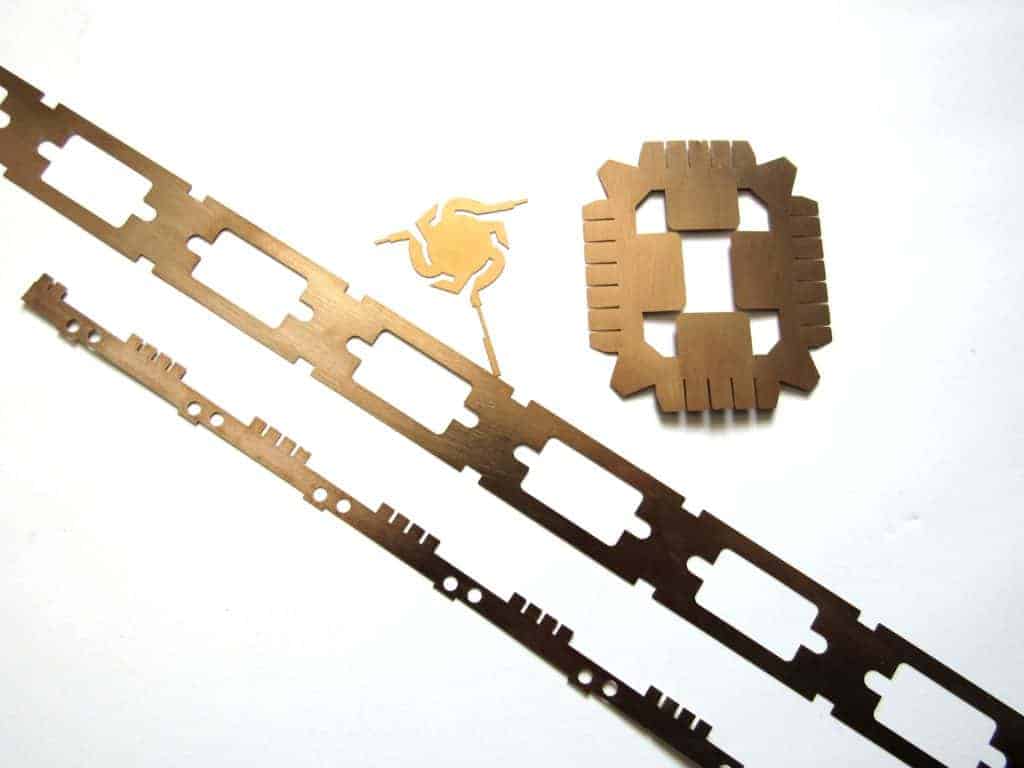
Acid metal etching of electronic components such as connectors, contacts, bus bars, shims and springs is crucial to prevent burrs that can interfere with the function. Etching creates the needed sharp edge on the metal. Additionally, the metal's properties do not change during the etching process. These capabilities are essential for electronic components to ensure they function correctly. Metal etching is a precise process that can produce very intricate designs. It is also relatively fast and inexpensive, making it attractive for many manufacturing applications.
Custom Acid Metal Etching
Etching has many benefits over other manufacturing processes when producing unique, intricate, or numerous features. A custom manufacturer can machine the parts exact to print, including half-etched features such as bend lines or multiple holes or slots etched simultaneously without extra cost.
At Advanced Metal Etching, we offer a wide range of etching solutions to companies across multiple industries. We have been a custom manufacturer of burr-free metal parts for nearly 30 years. We pride ourselves on being responsive and flexible supply chain partners serving many industries with prototypes to full-scale production. Get your prototype in as little as 24 hours!
